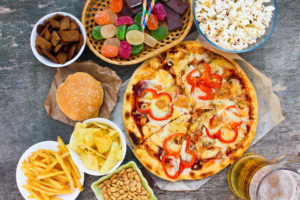 Tired? Join the club. The more I talk to people, the more they’re napping. It could have to do with a lot of things: feeling down and anxious about the pandemic, poor sleep, having more time, and a series of other factors.
Tired? Join the club. The more I talk to people, the more they’re napping. It could have to do with a lot of things: feeling down and anxious about the pandemic, poor sleep, having more time, and a series of other factors.
But one they may be overlooking is diet.
Advertisement
Snacks are always easy to reach for and today’s living conditions make it even easier. Food can be comforting. Consumption can be unconscious. And choices can have consequences. One is less energy.
If you tend to eat a lot of foods that are high in refined grains or sugar, energy levels can plummet and suck the energy from your life. Reaching for more can only compound the problem.
Foods like white bread and pasta, muffins, danishes, soda, fruit juice, cookies, sweets, ice cream, and more are dietary staples. But too many of these can have health implications. One of them is a massive spike in blood sugar. At first, these foods seem to restore energy.
But then it comes crashing down and you’re feeling fatigued. Reaching for more is an option, but the cycle is never-ending. Over time, you’re likely to develop high blood sugar, add weight, and increase your potential for metabolic diseases and heart disease.
Advertisement
Instead, swapping out these refined grains and high-sugar options for nutritious and fiber-rich options can make a big difference. Whole grains and high fiber foods help regulate blood sugar and provide longer-term sustained energy. They do not create massive blood sugar spikes or hard crashes.
These small decisions can help you stay energized throughout the day and keep fatigue at bay. But food choices only play one role in overall energy levels. Activity, sleep quality and duration, and potential nutrient deficiencies are in play too.
Diet is a great entry point with the potential to spur positive health changes. Energy, blood sugar, blood pressure, and disease risk are all influenced by food. Eating things with the potential to make you feel great can offer a huge help to overall health.
